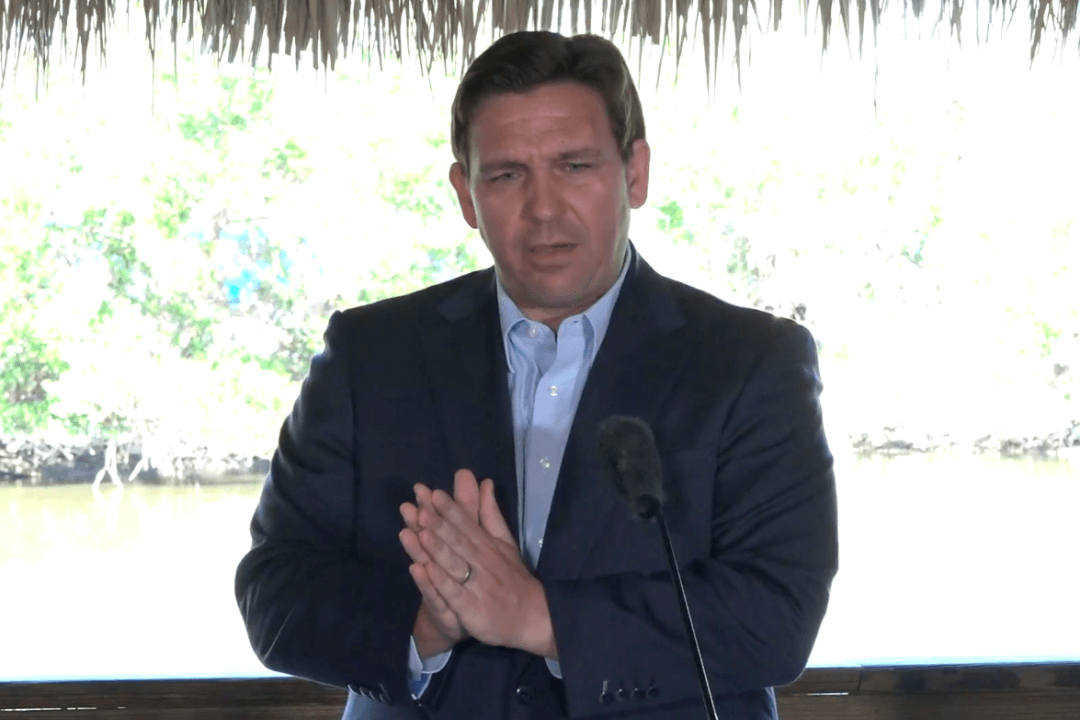Florida Governor Ron DeSantis has doubled down on the work his administration had carried out in his first term to improve the Sunshine State’s water quality.
At a Jan. 10 press conference in Bonita Springs, in a restaurant set to reopen after repairing Hurricane Ian’s damage, DeSantis announced an executive order committing another $3.5 billion to water quality projects in the state.





